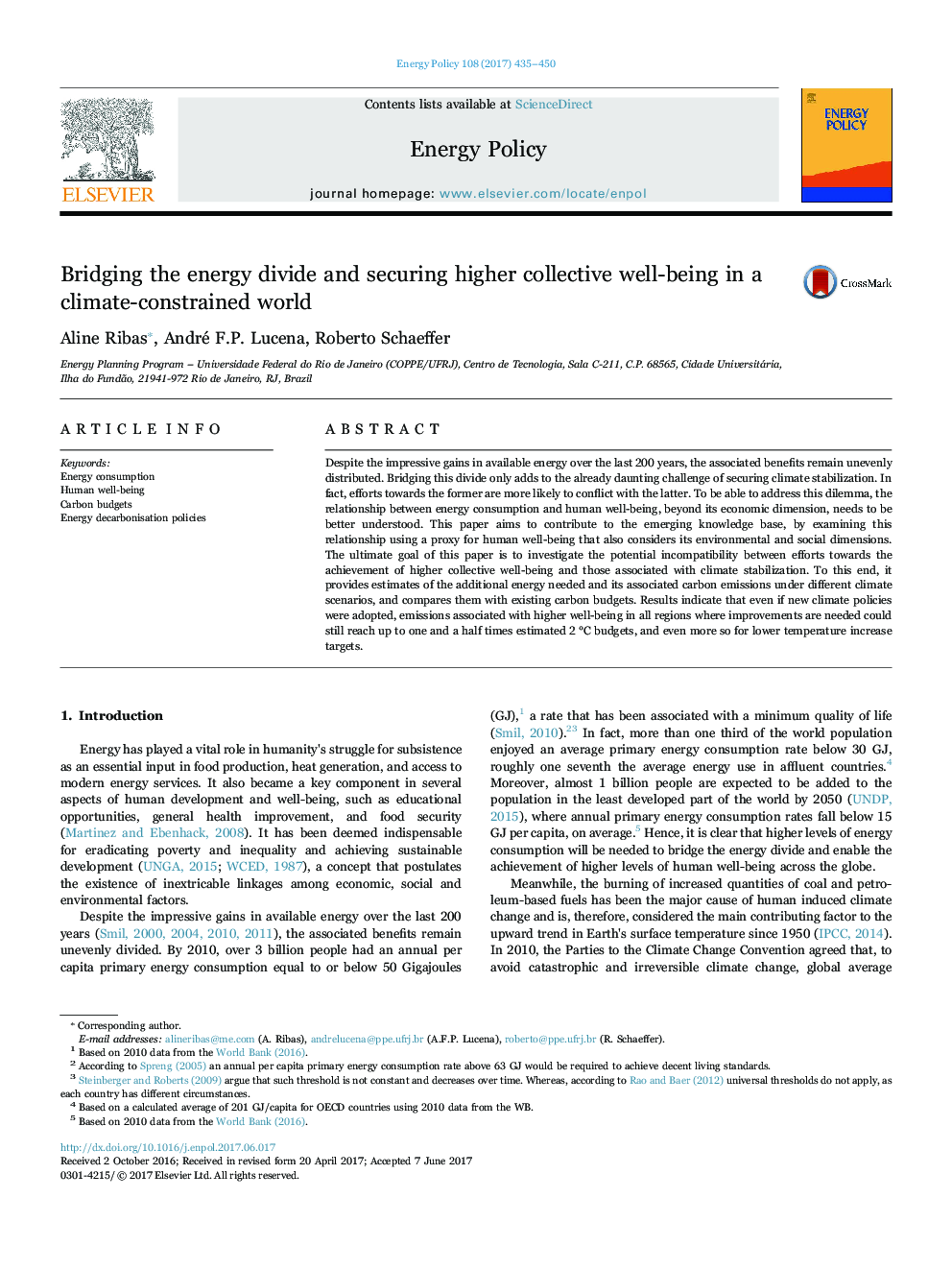| Article ID | Journal | Published Year | Pages | File Type |
|---|---|---|---|---|
| 5105647 | Energy Policy | 2017 | 16 Pages |
Abstract
Despite the impressive gains in available energy over the last 200 years, the associated benefits remain unevenly distributed. Bridging this divide only adds to the already daunting challenge of securing climate stabilization. In fact, efforts towards the former are more likely to conflict with the latter. To be able to address this dilemma, the relationship between energy consumption and human well-being, beyond its economic dimension, needs to be better understood. This paper aims to contribute to the emerging knowledge base, by examining this relationship using a proxy for human well-being that also considers its environmental and social dimensions. The ultimate goal of this paper is to investigate the potential incompatibility between efforts towards the achievement of higher collective well-being and those associated with climate stabilization. To this end, it provides estimates of the additional energy needed and its associated carbon emissions under different climate scenarios, and compares them with existing carbon budgets. Results indicate that even if new climate policies were adopted, emissions associated with higher well-being in all regions where improvements are needed could still reach up to one and a half times estimated 2 °C budgets, and even more so for lower temperature increase targets.
Related Topics
Physical Sciences and Engineering
Energy
Energy Engineering and Power Technology
Authors
Aline Ribas, André F.P. Lucena, Roberto Schaeffer,
